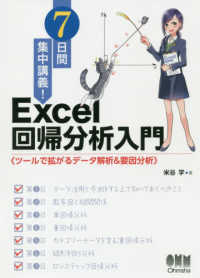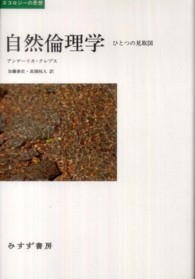Full Description
Use this "failure-free" approach to improve test scores and help all students enjoy reading!
Are you looking for strategies that make learning to read easier and more fun for your students while bringing about significant increases in their performance results? Literacy expert Marie Carbo pairs identifying each learner's unique reading style with a wide range of differentiated strategies to help all learners experience greater reading success.
Using these research-based methods, both novice and experienced teachers can increase reading achievement with all learners, including those who are at-risk, older, or have special needs, as well as English Language Learners. The author offers practical assistance for implementing strategies that meet the requirements of NCLB, Title I, Reading First, and many state initiatives. This teacher-friendly resource includes recommendations for:
Closing the academic gap by focusing on learning strengths
Increasing readers' confidence and creativity
Accommodating students with special needs
Using reading labs with older students
A powerful tool for nurturing a love of reading, Becoming a Great Teacher of Reading not only strengthens students' reading comprehension and increases their reading motivation and enjoyment, but also helps ensure their continuing academic success.
Contents
Acknowledgments
About the Author
Introduction
1. Believe All Students Can Learn
2. Understand 12 Guiding Principles
3. Focus on Comprehension and Enjoyment
4. Identify Natural Strengths
5. Teach to Natural Strengths
6. Use the Continuum of Assisted Reading Methods
7. Use the Carbo Recording Method
8. Provide Opportunities for Active Learning
9. Design Student-Responsive Environments
10. Reduce Visual Dyslexia
11. Accommodate Students With Special Needs
12. Prepare Students for Tests
Epilogue. Becoming a Great Teacher of Reading
Appendix A. Glossary
Appendix B. U.S. Reading Achievement
Appendix C. Reading Styles Research
Appendix D. Learning Styles Research
Appendix E. Reading Style Inventory
References
Index








